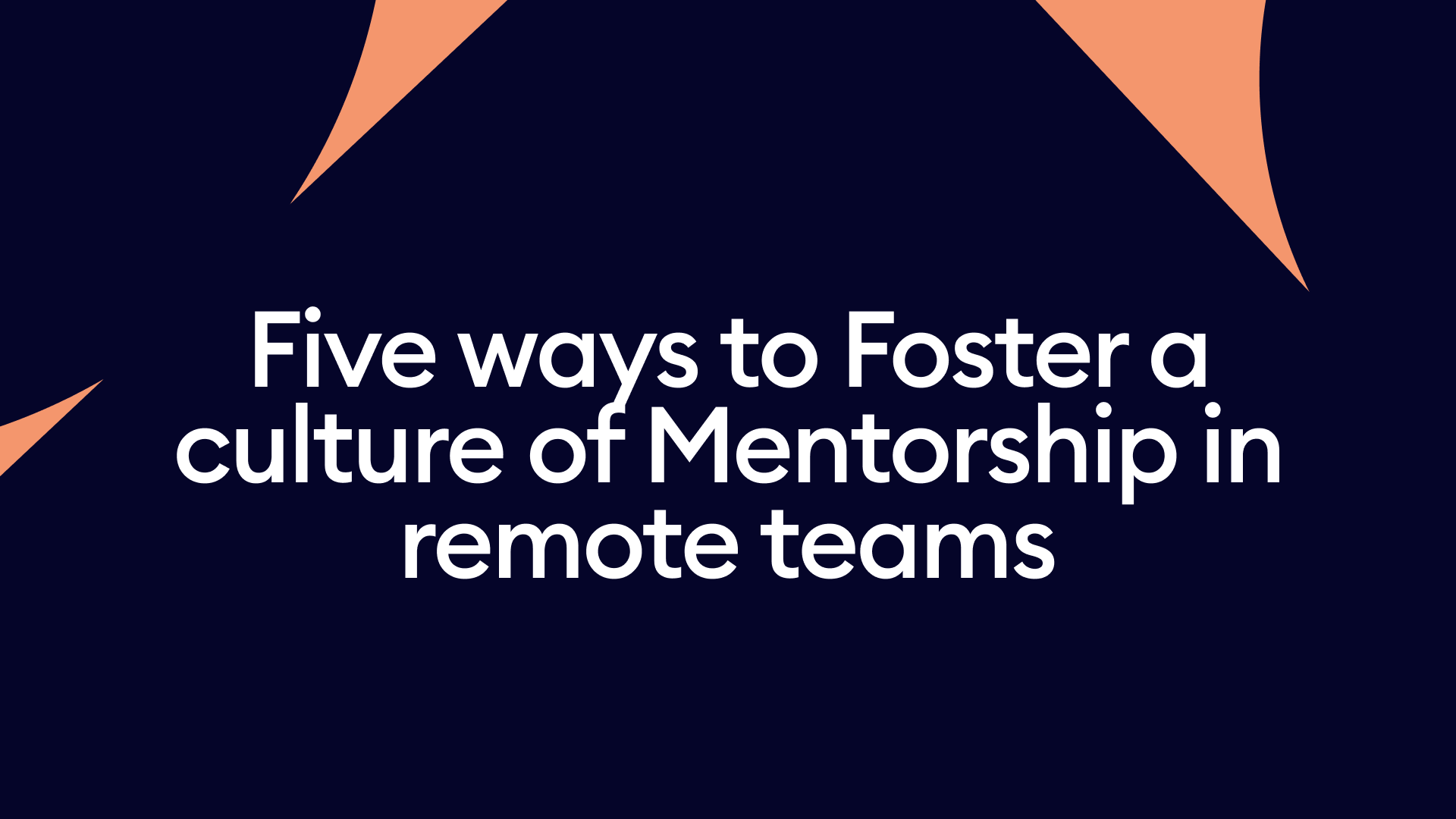Five ways to Foster a culture of Mentorship in remote teams
Mentoring is foundational in professional development, and you could argue even more so in the case of distributed teams, where working at a distance requires that team relationships get an extra level of care and attention.

Mentoring is foundational in professional development, and you could argue even more so in the case of distributed teams, where working at a distance requires that team relationships get an extra level of care and attention.
On September 12th, SafetyWing hosted an engaging and insightful live webinar: "Remote Mentorship 101: Unlocking Your Team's Potential in the Remote Workplace". In this power-packed session, a special expert panel of mentors from Virtual Work Insider, Plumm, SpatialChat, and Julianna Rabbi (Remote Career Coach) gathered online together to explore the practical strategies and effective techniques to become a strong mentor and guide for your remote team.
Learn from these key summary insights on Mentorship below.

Why is Mentorship important?
Nurturing your team's growth and potential in this virtual era is more critical than ever, and during our lively panel discussion, our experts started by discussing what Mentorship means to them and how it has fostered their professional development via their personal career stories.
Charlotte Schulz from Plumm shared her personal story and experiences of not having the support she needed early in her career and how it bolsters her mission to be a great mentor for her own team now:
When I started out, the mentorship support I got was lacking, to say the least, and I missed it - so I am trying to make a difference now - as I know how much it means! I want to be there for my team, support them, and show them that they have the capability and potential and can grow. Particularly to demonstrate that you can thrive and grow in a remote-first workplace.
Now, in her role as a People Lifecycle Manager at Plumm, Charlotte can foster, support, and mentor her team with real drive and authenticity, being the Mentor she never had in the early days of her career.

Building trust virtually to support a culture of Mentoring
Rowena Hennigan, Founder of RoRemote and SafetyWing’s regular webinar moderator had a powerful reminder of the importance of Trust in virtual environments.
What does Trust have to do with effective Mentorship in Remote Teams? Simple, really, trust is the glue that binds remote teams together!
Then, the panel went on to share various ways that they build trust, particularly via social activities, nonwork chats, and team-building activities. They all agreed that building rapport and having fun as a team together (online and offline) is key to fostering trust in mentoring-style relationships.
Nurturing talent via mentorship — at all levels
Danny Chepenko, from the founding team at SpatialChat, had a clear view of how he sees the impact of Mentorship at all levels. He started by breaking down his understanding of mentorship as follows:
I look at it with two different lenses. So, the first part is from an individual perspective, and the second one is from a team or group perspective. For the individual, it’s more related to career development, skills development, and developing as a professional yourself. For the team, I think it's more related to aligning your team members and making sure that everybody's on the same page.
He continues:
All our senior leadership team engage mentors, and we use our Advisors or Board Members for that. Mentorship has a place in ALL LEVELS of our organization!
Overcoming challenges to find suitable mentors
Sacha Connor, Founder at Virtual Work Insider, also emphasized that when she started working remotely for the first time whilst at the Clorox company in 2010, there was no one she could turn to for support in Remote Work best practices. To overcome that challenge, she had to use her own initiative and seek out those mentors for herself - those who were remote themselves across a global business - turning them into her allies and supporters. She explains:
A real turning point for me was when I went remote back in 2010. I didn't know how I was going to lead my teams, build team culture, and stay visible to my key stakeholders from 3,000 miles and three time zones away. So, I had to find other peers who were in those pockets of existing remote workers in other parts of the company, and then other external people, to mentor me so that I could actually mentor others within the company as they went remote over time. Creating a ripple effect to great success.
Her initiative to find the people who could mentor and guide her had an additional benefit: she also had a group of committed stakeholders to support her strategy, her own remote-first cheering squad.
The job candidate: assessing a company’s approach to mentoring
What about job candidates and seekers? How do they rate a future employer's view and true support for mentoring? Juliana Rabbi, a Remote Career Coach, suggested a great question for remote job seekers to ask during the interview process to understand the place that mentorship may have at that potential employer, helping them find a better fit for their own mentorship needs and support.
Try asking the question, “What is expected of me in terms of deliverables for this role within the first 90 days?”
She recommends, then continuing:
Listen and then clarify what support will be provided to you to meet those deliverable targets. This is when leadership and mentor support resources should be available — it is a checkpoint — on the role of Mentorship in that said companies’ culture and a superb way to validate how important they think it really is!
The panel all voted strongly in favor of this method, encouraging candidates to look for signs of mentorship - early doors - during the interview process. This closing reflection is a clear validation that effective Remote Teams advocate and foster Mentorship for both individual and team development. SafetyWing, as a fully remote organization, clearly appreciates and advocates for this approach, sponsoring and hosting this webinar as one of their key topics for 2023.
Finally, from an employer branding perspective, it shows that individual top talent values and looks for mentoring support as part of any valid and modern corporate culture. For them, it is foundational in their professional development. Therefore, for organizations and teams, it is increasingly a non-negotiable.
Thanks to SafetyWing for sponsoring this insightful discussion!
Join for their next webinar: “Employee Borderless Benefits & HR Trends We’re Watching For in 2024.”
Date: October 3, 2023
Time: 12:00-01:00 PM EST
SafetyWing provides remote workers and distributed teams with global health insurance that works in almost any country under one price and plan so that employees are free to relocate and work and live anywhere they want.
